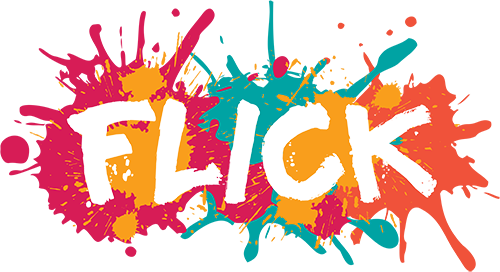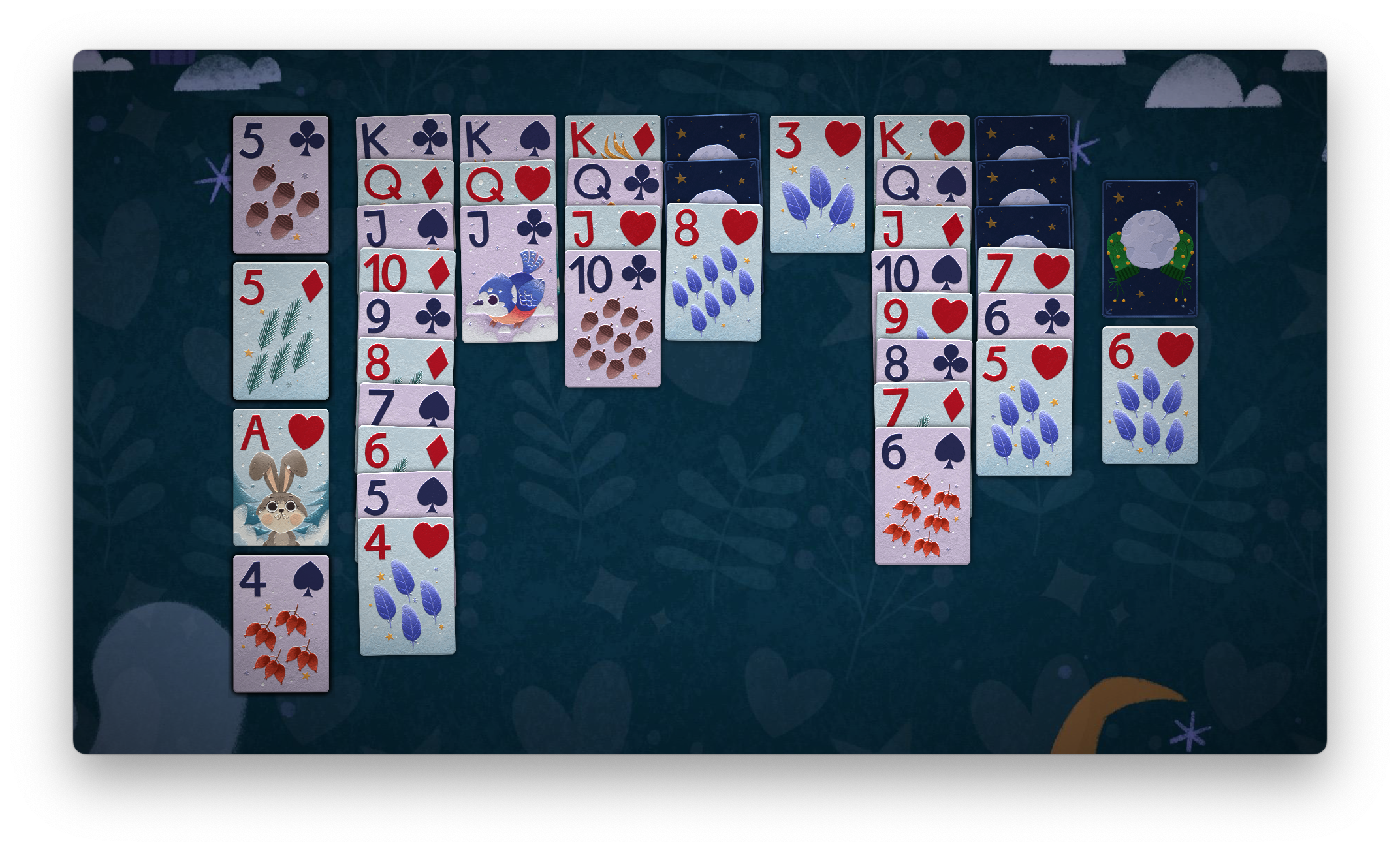Solitaire or Klondike
How to Play.
Solitaire (also known as Klondike) is the most popular version of Solitaire played today. Let’s get started with some Solitaire language.
Tableau: the 7 columns on the main table - we like to think of it as a home for the cards until you get them in the right order!
Foundations: the 4 piles of the sequence you are building. Aces go to the bottom.
Deck: the face-down pile. Think of these as additional cards you can bring into play.
Stack: the face-up pile of cards.
The tableau is set up for you to create 7 columns. Your goal is to move all cards to the foundations, creating a sequence among the seven columns.
Cards can be moved from one column to another - as long as they are a different colour and in descending order. (K, Q, J, 10, 9, 8, 7…).
Flick a faceup card from one of the 7 columns onto another faceup card remembering the rules above.
Flick Aces to the foundation piles to start building your sequence pile. If you’re left with a space in one of your 7 columns- you can move a King there - but only a King.
Choose from Deal 1 or Deal 3 - both with different levels. The major difference is that the deck pile will deal a single card or every third card.
If you can’t make a move, tap the deck pile (stock) to draw a card.
You can drag cards the same as with other Solitaire games but why do that? This is Flick Solitaire!
Try flicking for a feel-good way to make the cards fly. You can speed the flick up or down by tweaking the in-game speed in settings. Even a tiny flick works but play any way that makes you happy!
To win the game move all cards to the 4 foundation piles.
Rules and tips to play Solitaire.
Try to free up columns by moving incomplete sequences to other piles. As long as the first card is face up and matches in descending order.
Aim to reveal all the cards in the deck pile (stock) as well as reveal all the facedown cards to help build your sequences to the Ace foundations.
Is Solitaire Good for Mental Health?
Life is a busy place and when it’s not busy it can be boring. Solitaire provides a subtle pick-me-up that can help in many ways to improve Mental Health.
Solitaire helps calm the mind.
Having something to focus on helps give the brain a break from being busy. Playing Solitaire encourages a light meditative state that calms and soothes the mind. It’s important to find time to release tension in both your mind and body. Solitaire card games require focus and provide that escapism - even if it’s for 10 minutes a day - it’s a welcome and fun distraction that can leave you feeling refreshed and relaxed.
Our player community humble us with the stories they share. We receive emails about how our game has helped get them through hard times. From anxiety, insomnia and stress, Solitaire helps to relieve stress and strains by focusing the mind somewhere else. We purposely built our game to give players a place to relax, with no timers and player-friendly solvable levels, there’s no pressure to win, just a place to slow down and calm the mind.
Solitaire encourages alone time.
Even extroverts and the most social of butterflies need alone time. It’s beneficial for everyone to find moments to take stock and understand our thoughts without the noise around us. Solitaire, well-known for being a single-player game provides the perfect excuse to take time for ourselves.
Solitaire can boost happiness and help decision-making.
Depending on your method, we like to give players the chance to play at their pace. For fans of faster play, cards can be flicked rapidly from sequence piles to the foundations. However, for those who prefer a more pensive experience, there’s no time pressure to rush your game.
Consider slowing down and focusing on strategy, and hone your decision-making skills to build your moves and columns. This can bring a delayed reward that can be all the sweeter! Whichever way you win deals, watching the completed foundation fly is gratifying! Winning releases good vibes all around our minds and bodies boosting our happiness and well-being.

